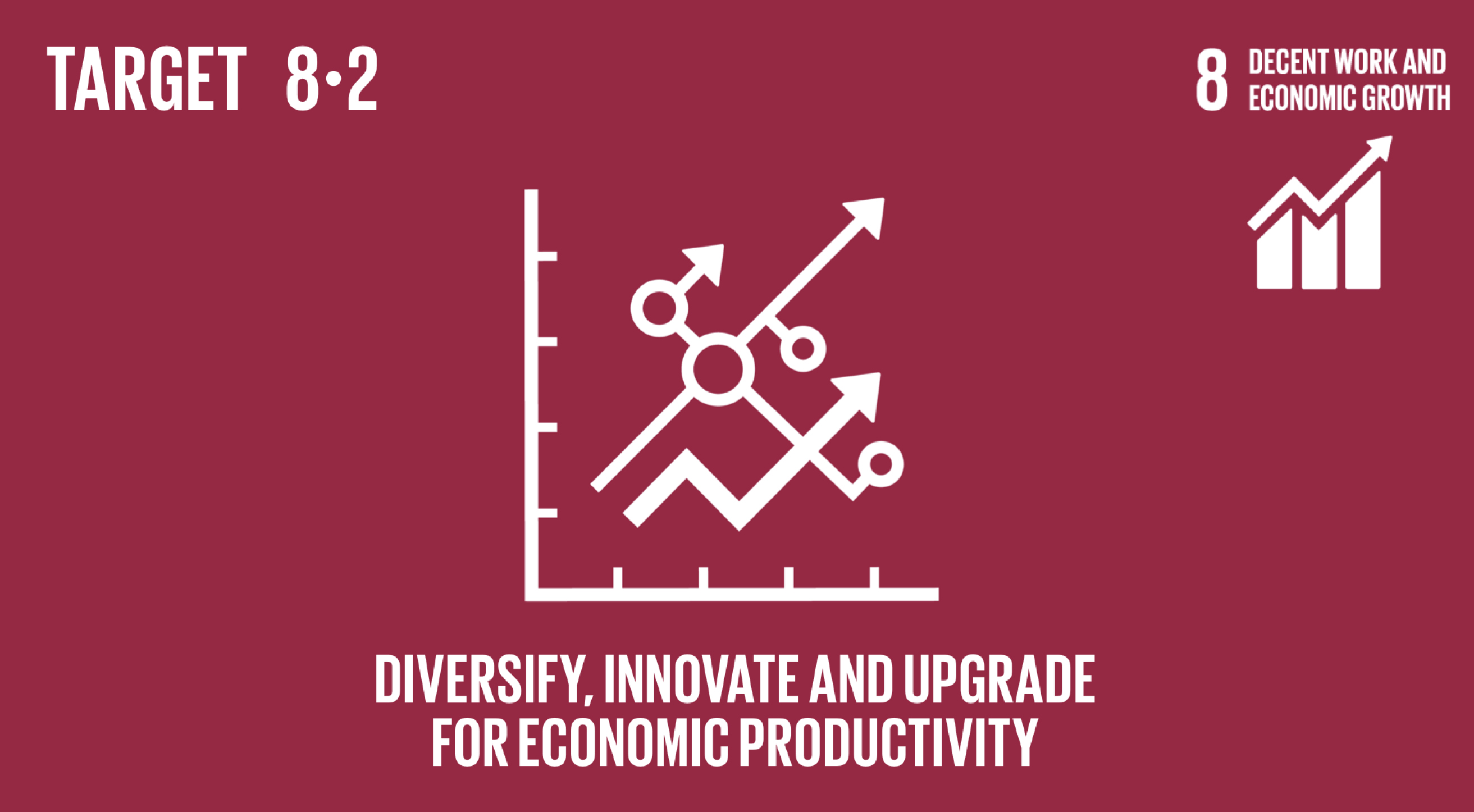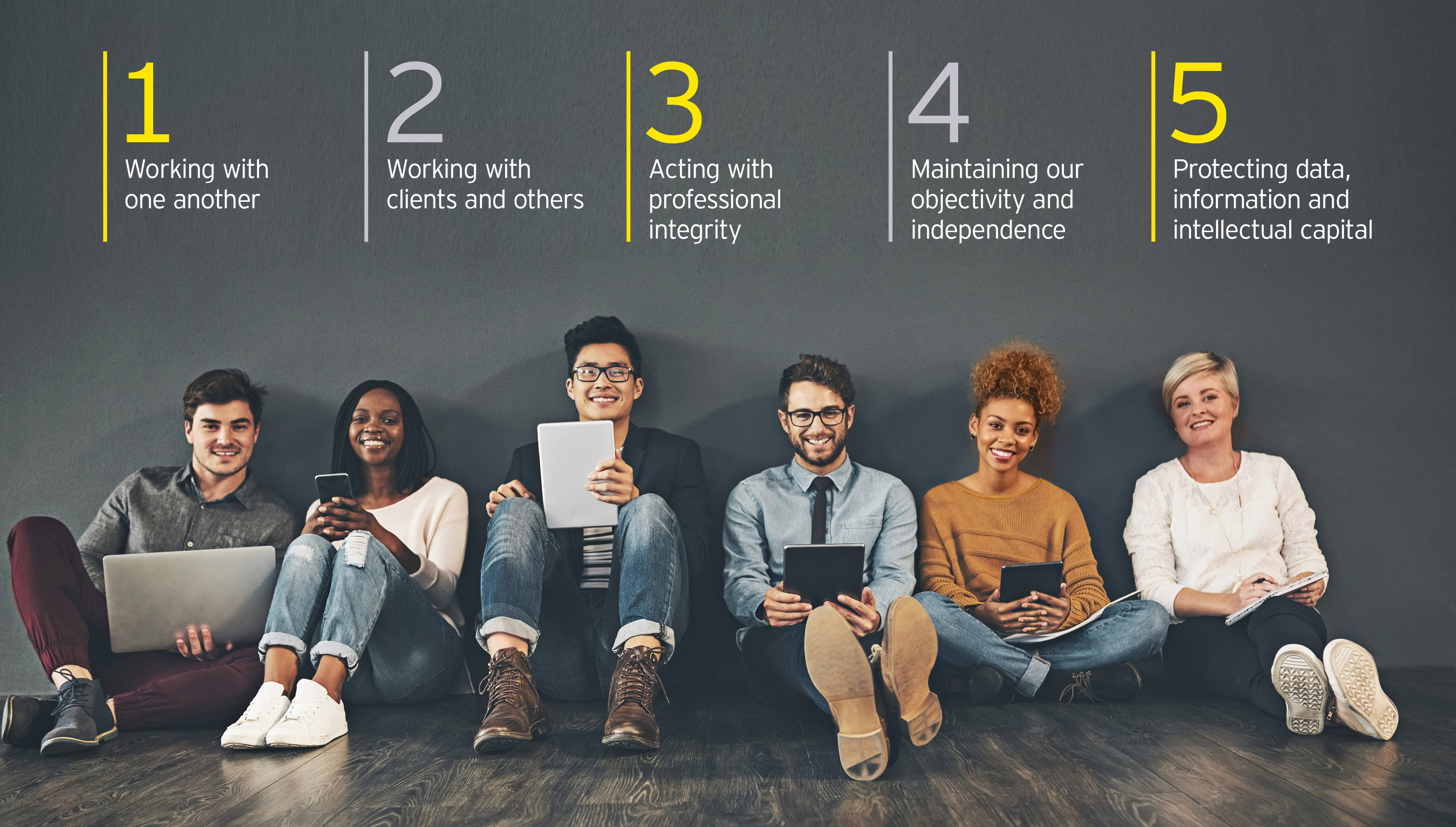Corporate Responsibility
Our approach to sustainability is centered around EY’s purpose of building a better working world. Get insights into our ambitions, targets and policies.
Annual Report 2022/2023
Our long-term commitments include achieving net zero carbon emissions, increasing diversity, equity and inclusiveness in the workforce, and contributing to prosperity in the communities we operate in.
We organize our approach to sustainability around four pillars:
| High-level ambition | Become the most trusted professional services firm | |
| FY25 Target and focus area (FY19 baseline) |
Code of Conduct and independence training: 100% Code of Conduct and independence confirmation: 100% |
Supplier Code of Conduct coverage: 100% |
| Action | Require annual training and confirmation from all EY people |
Continue to strengthen our focus on Danish supply chain in cooperation with EY Global Supply Chain Services |
| Results FY23 | Code of Conduct training/confirmation: 99%/100% Independence training/confirmation: 100%/100% |
Completed first Human Rights due diligence Continue to monitor supplier ESG compliance |
The insights and quality services EY delivers help build trust and confidence in businesses and the capital markets. We serve the public interest by delivering high-quality, analytics-driven audits based on independence, integrity, objectivity and professional skepticism.
The EY approach to business ethics and integrity is contained in the EY Global Code of Conduct and other policies. Our Code of Conduct provides a clear set of standards that guide our actions and business conduct.
EY strives to adhere to the highest ethical standards, including in relation to protecting human rights, upholding international labor standards, protecting the environment, and opposing bribery and corruption in all its forms.
We anchor anti-corruption measures across EY, and partners and employees are obliged to complete regular training, we help clients strengthen their integrity and compliance frameworks and cooperate with external networks and groups in the fight against corruption.
We are committed to integrating the United Nations Global Compact (UNGC) Ten Principles and the UN Sustainable Development Goals (SDGs) into EY strategy, culture and operations.
Our expectations concerning environment, human rights and social conditions extends to our suppliers who need to verify their adherence and standards according to our Supplier Code of Conduct.
Our Transparency report disclose our internal control systems, ethical values, how we execute our audits, quality routines and independence. Download
16.5 “Substantially reduce corruption and bribery in all their forms”
EY is committed to fighting corruption in all its forms and has implemented a global policy against bribery and corruption. We embed anti-corruption measures throughout EY, and all employees are required to complete annual training on this matter. An unwavering commitment to combating corruption is also built into the services we offer clients. The insights and quality services we deliver at EY help build trust and confidence in the capital markets and economies, and we help companies manage their anti-bribery and anti-corruption programs. To raise awareness of the fight against corruption, we also collaborate with external networks and groups.
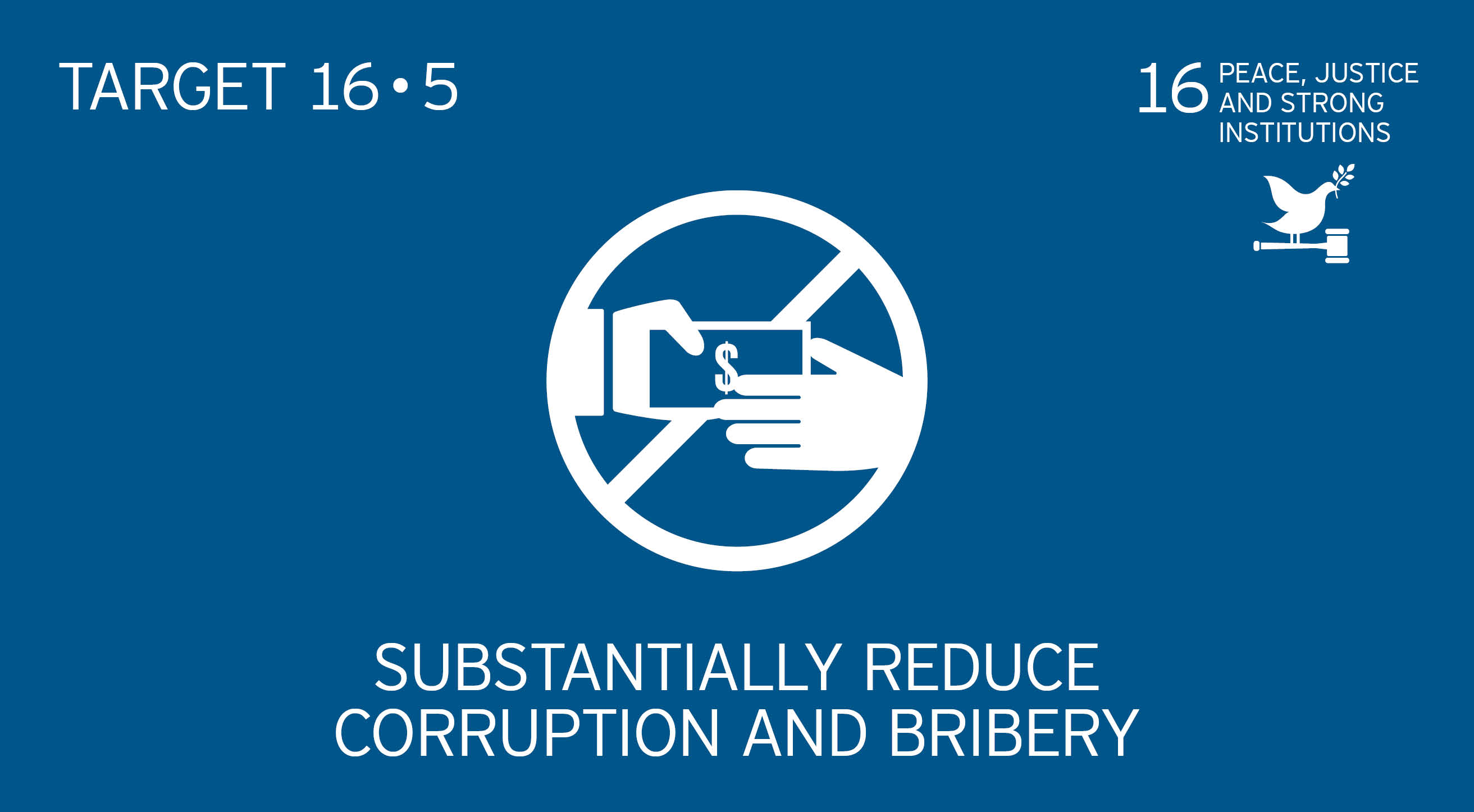
| High-level ambition | Protecting the planet to support the needs of current and future generations | ||
| FY25 Target and focus area (FY19 baseline) |
Reach Net Zero in FY25 (SBTi) Absolute GHG emissions: -40% vs. FY19 |
Keep annual air travel emissions at 50% of FY19 level toward FY25 | Recyclability of waste: 80% |
| Action | Support implementation of EY Global's seven-point action plan to reach Net Zero in FY25 and continue implementation of ISO14001 EMS | Implement initiatives to reduce internal travel | Improve waste sorting in offices |
| Results FY23 | GHG emissions all scopes: -47% vs. FY19 | Air travel emissions: -49% vs FY19 | Share of recyclable waste: 64% |
EY has set targets to significantly reduce absolute emissions, and to remove or offset more carbon than we emit each year, making EY reach net zero by 2025.
We will reduce our absolute emissions by 40% across scopes 1, 2 and 3 against an FY19 baseline, consistent with a 1.5°c science-based target, approved by the Science Based Targets initiative (SBTi).
To reach our reduction targets, EY has globally defined seven actions including, reduction in business travel, reducing overall office electricity usage, and procuring 100% renewable energy for remaining needs, using nature-based solutions and carbon reduction technologies to remove from the atmosphere or offset more carbon than emitted, every year, providing EY teams with tools to calculate, then work to reduce, the amount of carbon emitted in carrying out client work, requiring that our largest suppliers have set science based targets, investing in EY services and solutions that help clients create value from decarbonizing their businesses and provide solutions to other sustainability challenges and opportunities.
7.3. “By 2030, double the global rate of improvement in energy efficiency”
At EY, we aim to be more energy efficient by reducing our absolute GHG emissions across scopes 1, 2 and 3 by 40% by reducing business travel, mainly by air, and energy consumption and waste in our offices.
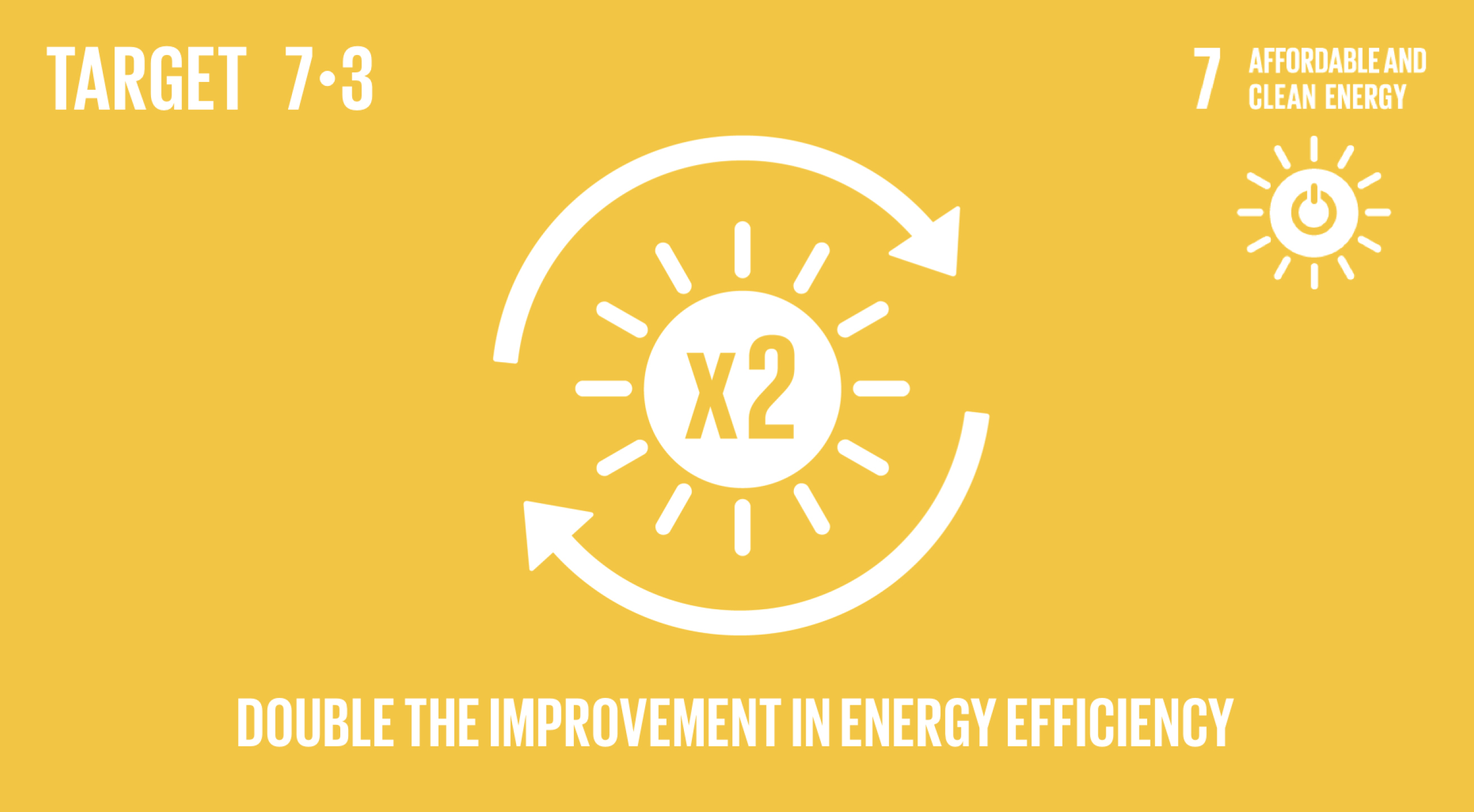
12.6. “Encourage companies, especially large and transnational companies, to adopt sustainable practices and to integrate sustainability information into their reporting cycle”
At EY, we aim to accelerate our clients and suppliers’ sustainability journeys. In addition, we integrate sustainability information into our reporting cycle, and we work consistently to adopt sustainable practices in our organization as part of our global seven-point action plan to reach net-zero in FY25.
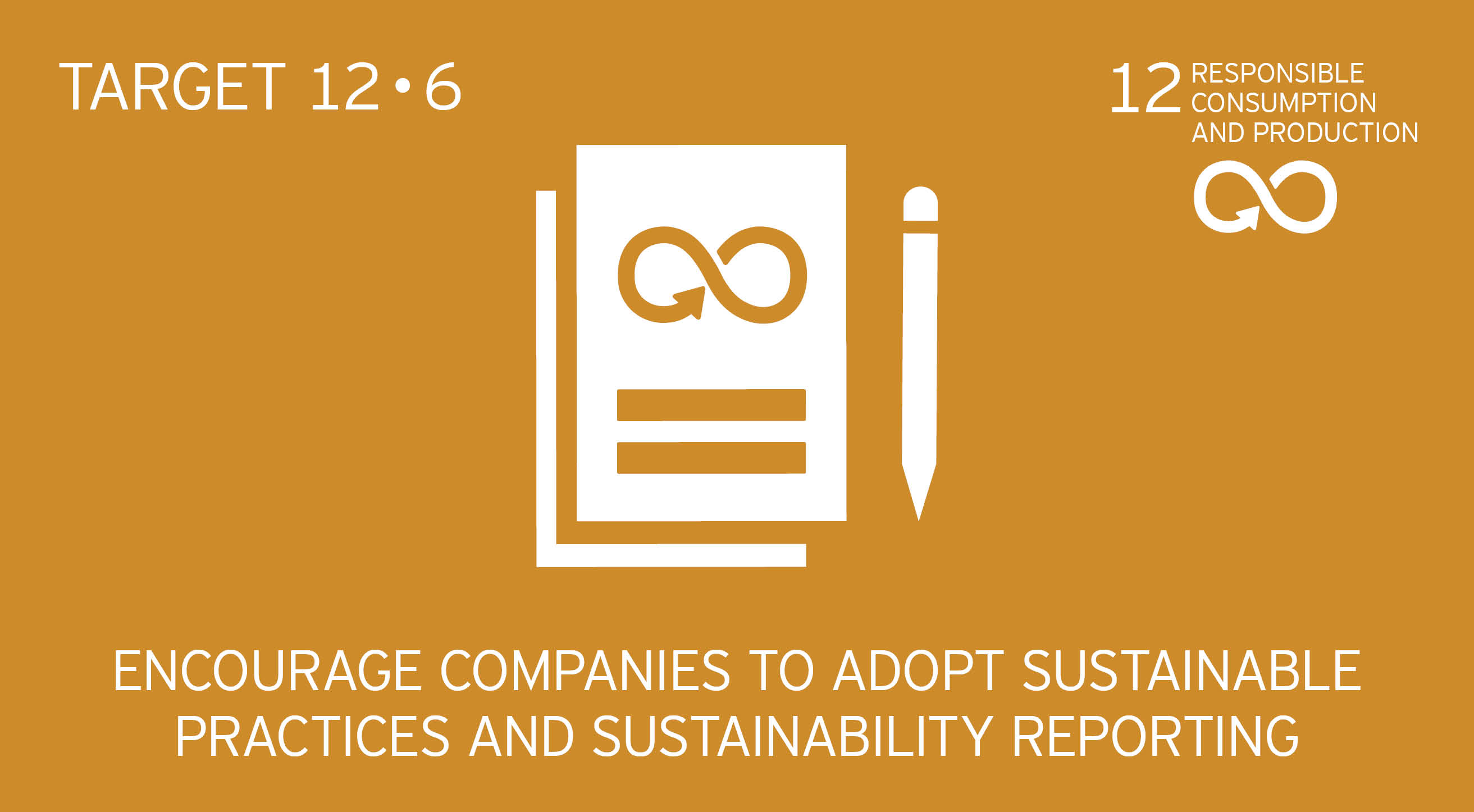
| High-level ambition | Empower EY people to build their own exceptional EY experience | |
| FY25 Target and focus area (FY19 baseline) |
Gender balance: 40% women at leadership level | Employee well-being and satisfaction measured by min. 90% perceive to have an “Exceptional EY experience” |
| Action | Improve and increase efforts for better gender balance |
Listening to our people to support employee well-being, engagement, retention and satisfaction |
| Results FY23 | Gender balance, all employees: 41%/59% (w/m) Leadership level: 33%/67% (w/m) |
82% of EY people agree that their experience at EY is exceptional |
EY brings together extraordinary people to build a better working world. Their growth in knowledge, prosperity, well-being and equal opportunities for all is central to the success of our organization.
At the core, we strive to provide our people with exceptional experiences by:
- Welcoming diverse teams were everyone feels a sense of belonging.
- Fostering an inclusive environment mindful of our people’s health and well-being.
- Developing our people’s skills and competencies for the future.
In EY, we are deeply committed to creating an environment where differences are not only accepted but are truly valued. With a diverse workforce, we are better equipped to utilize the power of different opinions, perspectives and cultural references, which will help us set the highest performing teams. We see diversity and inclusiveness as vital to our business success and continued growth.
- Hybrid working model (in Danish)
- DE&I statement
- Human Rights Statement
5.5 ”Ensure women’s full and effective participation and equal opportunities for leadership at all levels of decision-making in political, economic and public life”.
We work to ensure gender equality at all levels in the organization, and especially focus on greater gender balance on leadership level in EY. Several activities are in place already, including global and local mentoring programs, unconscious bias training, and strengthened efforts around parental leave, and we are implementing more initiatives. We aim to ensure that our activities promote our talent pool to become even more diverse and better balanced.
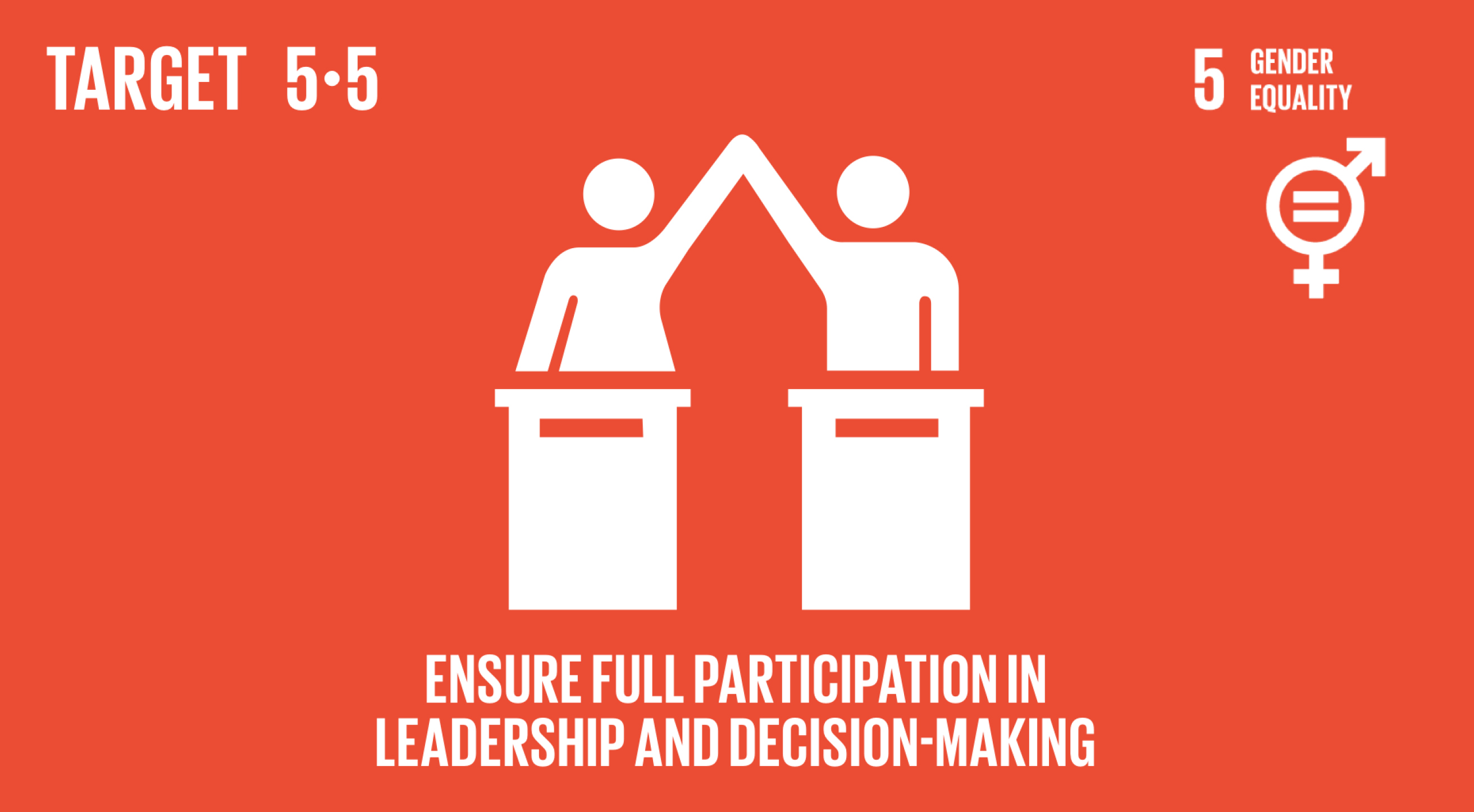
10.2 “By 2030, empower and promote the social, economic and political inclusion of all, irrespective of age, sex, disability, race, ethnicity, origin, religion or economic or other status”
EY works to ensure diversity, equity and inclusiveness for all our people. We strive to offer all employees equal opportunities in recruitment and selection, development and promotion. Our goal is for all employees to feel appreciated, respected and fairly treated with appropriate compensation and good benefits. Our actions include inclusiveness training, unconscious bias training, network programs and much more. We aim to ensure our people feel included and free to be themselves. Our responsibility to respect human rights also extends beyond our direct operations to our supply chains. We try to actively monitor our suppliers’ work with human rights.
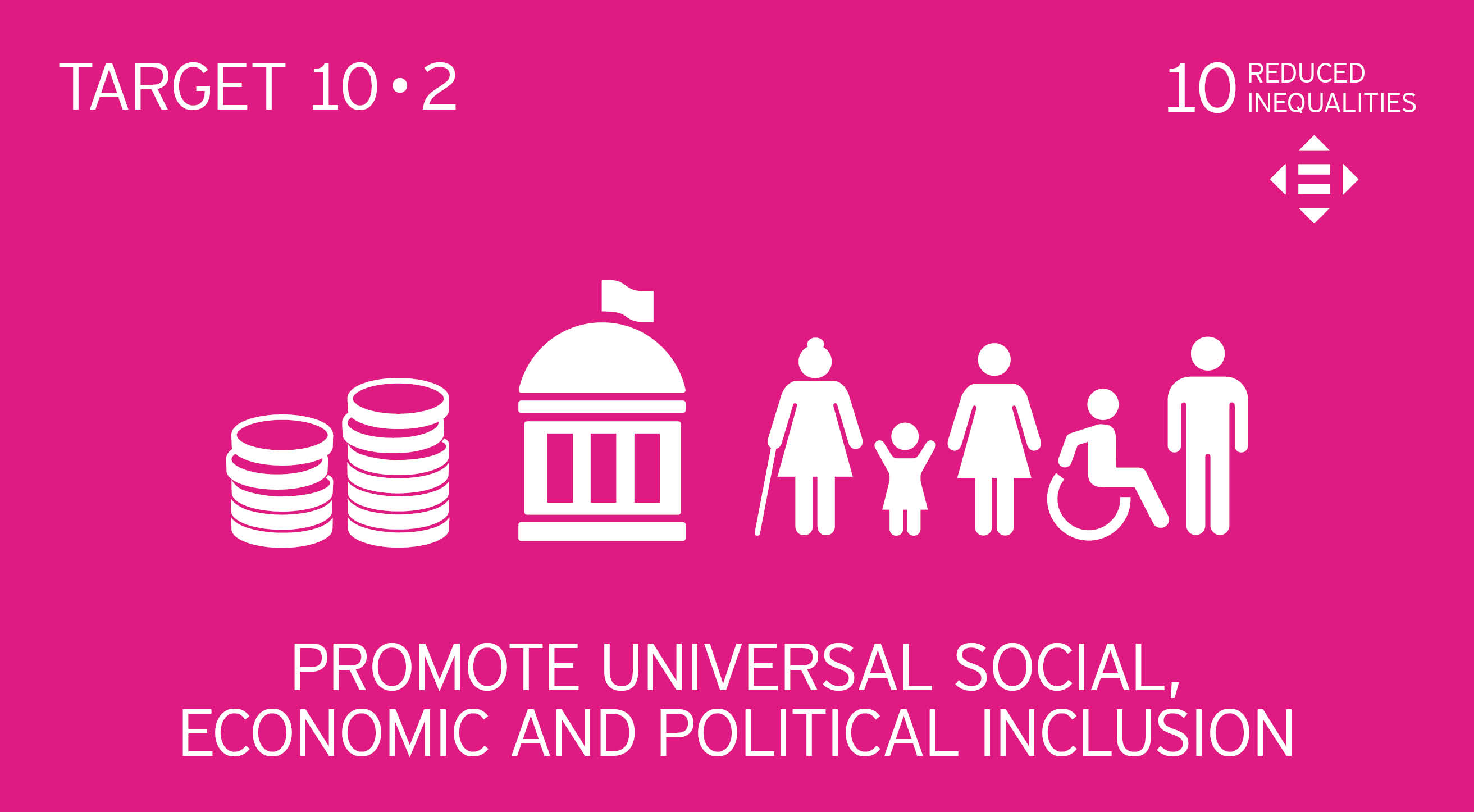
| High-level ambition | Building a better working world in the communities where we live and work | |
| FY25 Target and focus area (FY19 baseline) |
Deliver exceptional audit services |
Contributing to EY Global’s target of 1 billion lives impacted through EY Ripples* |
| Action | Invest US$10b in audit quality, innovation, tech and people as a 3-year commitment by EY Global |
Introduce initiatives to support local communities |
| Results FY23 | EY Global invested US$3.6b* |
Positively impacted 210k lives through 356 participants |
| *Initiatives driven by EY Global | ||
A company’s value is increasingly reflected in the off-balance sheet intangible assets and value drivers associated with economic and social prosperity.
Through the EY Ripples program, we extend the value of EY knowledge and networks to people and places we might not otherwise reach. It empowers EY people to devote their time to SDG-focused projects that apply their skills in different contexts and help them develop as more inclusive leaders with a deeper understanding of the challenges facing communities across the world. As more and more EY people learn to appreciate the social value of the skills they use every day, so creating long-term value for society becomes more deeply embedded in our culture.
Together with clients and other like-minded organizations, EY people use their distinctive skills to bring positive change across three focus areas:
- supporting the next generation workforce,
- working with impact entrepreneurs and
- accelerating environmental sustainability.
4.4. ”By 2030, substantially increase the number of youth and adults who have relevant skills, including technical and vocational skills, for employment, decent jobs and entrepreneurship”.
We work to increase the number of young people with relevant skills for employment and entrepreneurship, especially through our EY Ripples program. Here EY people volunteer their time and skills to mentor students and vulnerable young people and offer guidance for young start-ups as well as give feedback and coaching to students with a passion for entrepreneurship.
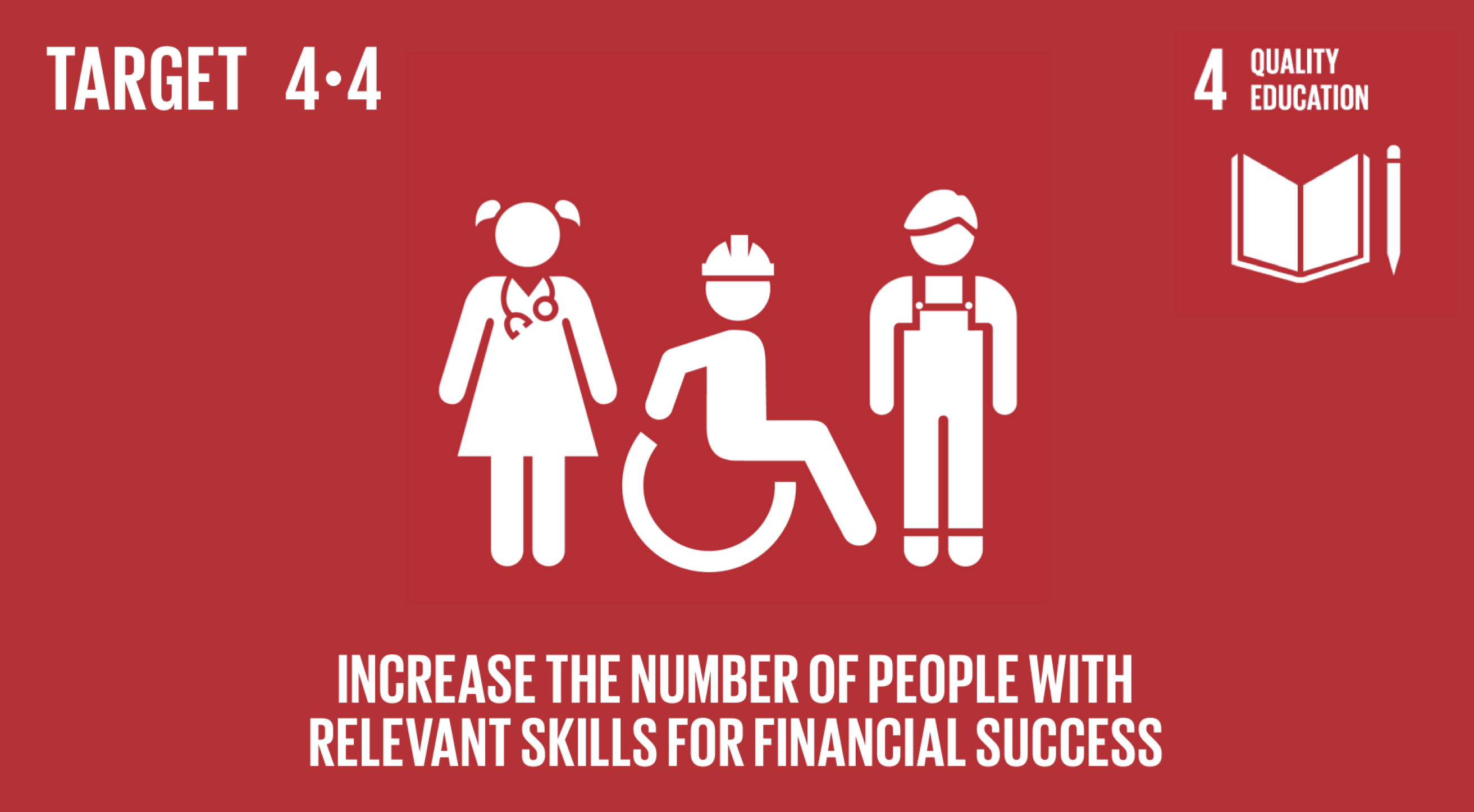
8.2 ”Achieve higher levels of economic productivity through diversification, technological upgrading and innovation, including through a focus on high-value added and labor-intensive sectors”.
EY works long term to strengthen quality, enhance efficiency and create transformative opportunities for sectors and businesses through a clear focus on investments in innovation, technology and AI-enabled solutions. We aim to invest US$ 10 billion globally from 2021 towards 2024 on audit quality, strategy, technology and people.
